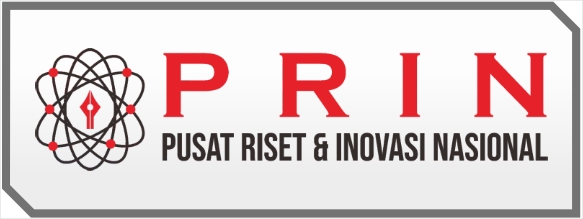PERSEPSI DAN EFEKTIVITAS PELAKU UMKM TERHADAP PEMBERIAN BANTUAN SOSIAL PADA MASA PANDEMI COVID-19 DI KECAMATAN SERIRIT
(STUDI KASUS DESA SULANYAH)
DOI:
https://doi.org/10.55606/jaem.v2i3.366Keywords:
micro, small and medium enterprises, effectiveness, micro business productive assistanceAbstract
The COVID-19 pandemic is an epidemic that has spread to various continents and countries. Since March 2nd, 2020, the name Indonesia has been included in the country affected by the corona virus. Not only is it detrimental on the health side, this pandemic has greatly impacted the economy in Indonesia, especially in Seririt District, especially in Sulanyah Village, most of the people who are involved in the business sector, one of which is through micro, small and medium enterprises, suffered losses. In this case, it is hoped that the role of the government will participate in helping the development of these micro, small and medium enterprises. One of the government programs to assist business actors is by providing social assistance through the micro, small and medium enterprises Direct Cash Assistance program in the form of Micro Business Productive Assistance. This type of research is a qualitative research that seeks to collect facts and circumstances properly through interviews. The interviews conducted in this study were intended for business actors affected by Covid-19 and recipients of assistance. The results of the research show that the effectiveness of assistance provided by the government is very helpful in maintaining and developing businesses for beneficiaries. With this assistance, sales turnover, goods production, and business actors' profits have increased.
References
A.A. Anwar Prabu Mangkunegara. 2002. Manajemen Sumber Daya Manusia. Perusahaan. Bandung: PT. Remaja Rosdakarya.
Aisyah, Siti. 2020. Manajemen Keuangan. Medan: Yayasan Kita Menulis.
Anwar, M. (2019). Dasar-Dasar Manajemen Keuangan Perusahaan . Jakarta: Kencana . Armereo, C., Marzuki, A., & Seto, A. A. (2020). Manajemen Keuangan. Nusa Litera Inspirasi.
Bimo Walgito. 2002. Pengantar Psikologi Umum. Yogyakarta: Andi Offset Djamarah. 2002. Psikologi Belajar. Jakarta: Rhineka Chipta
Bimo Walgito. 2002. Pengantar Psikologi Umum. Yogyakarta: Andi Offset
Depdikbud. ( 1985 ). Tugas Guru Manajeman Kelas dan Metode Mengajar, Bandung: Kanwil Propinsi Jawa Barat.
Fahmi, Irham. (2013). Kewirausahaan Teori, Kasus, dan Solusi. Bandung: Alfabeta.
Kariyoto. 2018. Manajemen Keuangan: Konsep dan Implementasi. Cetakan Pertama. UB Press. Malang. Mulyana Deddy. 2005. Ilmu Komunikasi Suatu Pengantar. Bandung: PT Remaja Rosdakarya.
Nurdiansyah, Haris & Rahman., R., S. (2019). Pengantar manajemen. Yogyakarta: Diandra kreatif.
Rakhmat, Jalaluddin.2011.Psikologi Komunikasi. Bandung : PT Remaja Rosdakarya.No.40.Hlm.224. Robbins, S. P. (2003) Perilaku Organisasi: Konsep Kontroversi Aplikasi. Edisi Kedelapan. Trans.
Pujaatmaka, H & Molan, B. Jakarta: Pt. Prenlindo.
Rosyadi, I. 2001. Keunggulan kompetitif berkelanjutan melalui capabilities-based competition: Memikirkan kembali tentang persaingan berbasis kemampuan. Jurnal BENEFIT, vol. 5, No. 1, Hal. 139-142. Fakultas Ekonomi Universitas Muhammadiyah Surakarta.
Tambunan, 2011.Teori Ekonomi Makro, Fakultas Ekonomi Universitas Indonesia, Jakarta
Tambunan, Tulus, “Usaha Mikro Kecil dan Menengah di Indonesia : isu-isu penting”, Jakarta : LP3ES, 2012.
Taniputera. 2005. Psikologi Kepribadian. Yogyakarta : Pustaka Pelajar.
Undang-Undang Republik Indonesia No. 20 Tahun 2008 tentang Usaha Mikro, Kecil dan Menengah.Pengertian usaha mikromenurut Keputusan Menteri Keuangan No.40 / KMK.O6 / 2010 tanggal 29 Januari 2010
Downloads
Published
How to Cite
Issue
Section
License
Copyright (c) 2022 Jurnal Akuntansi, Ekonomi dan Manajemen Bisnis

This work is licensed under a Creative Commons Attribution-ShareAlike 4.0 International License.















